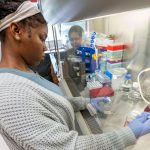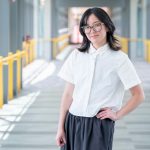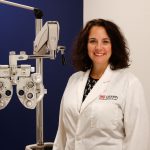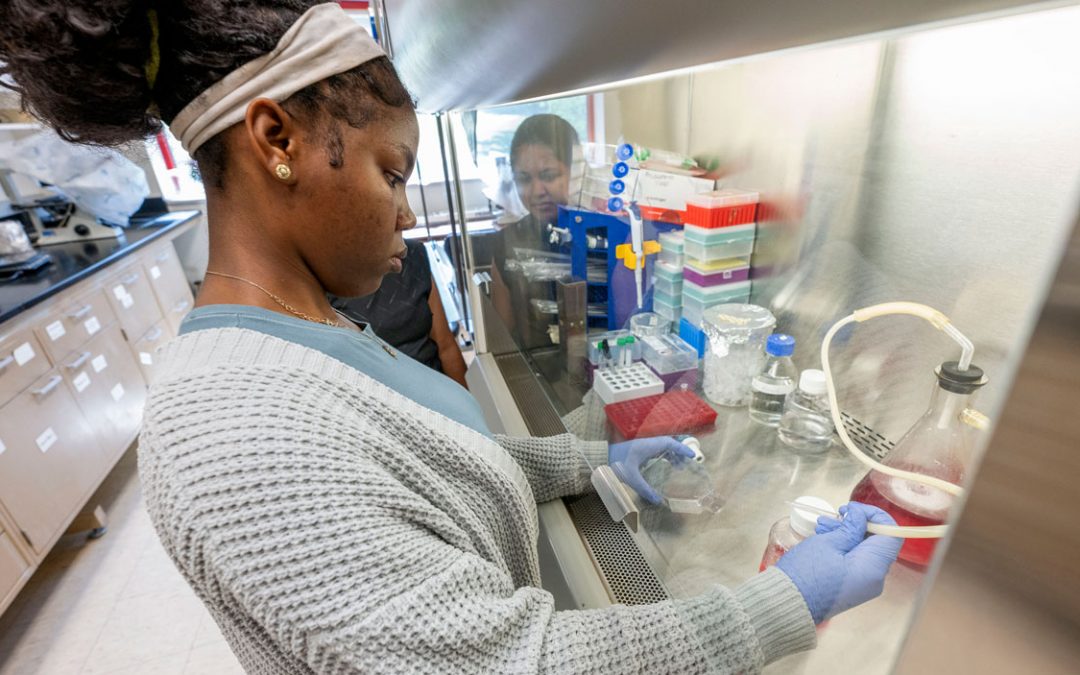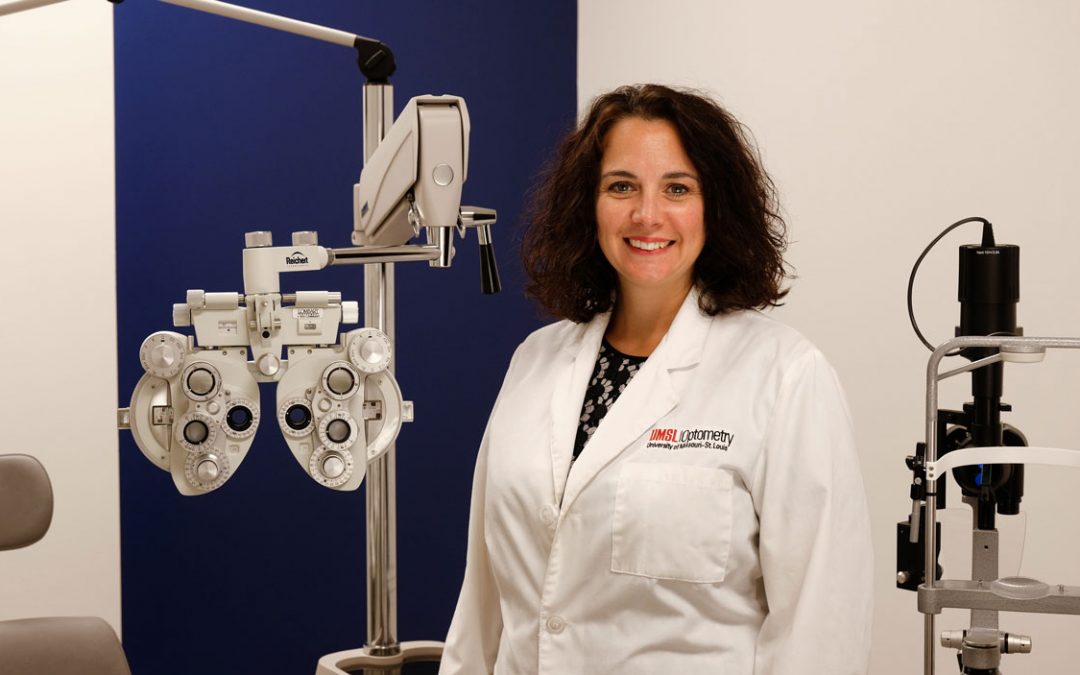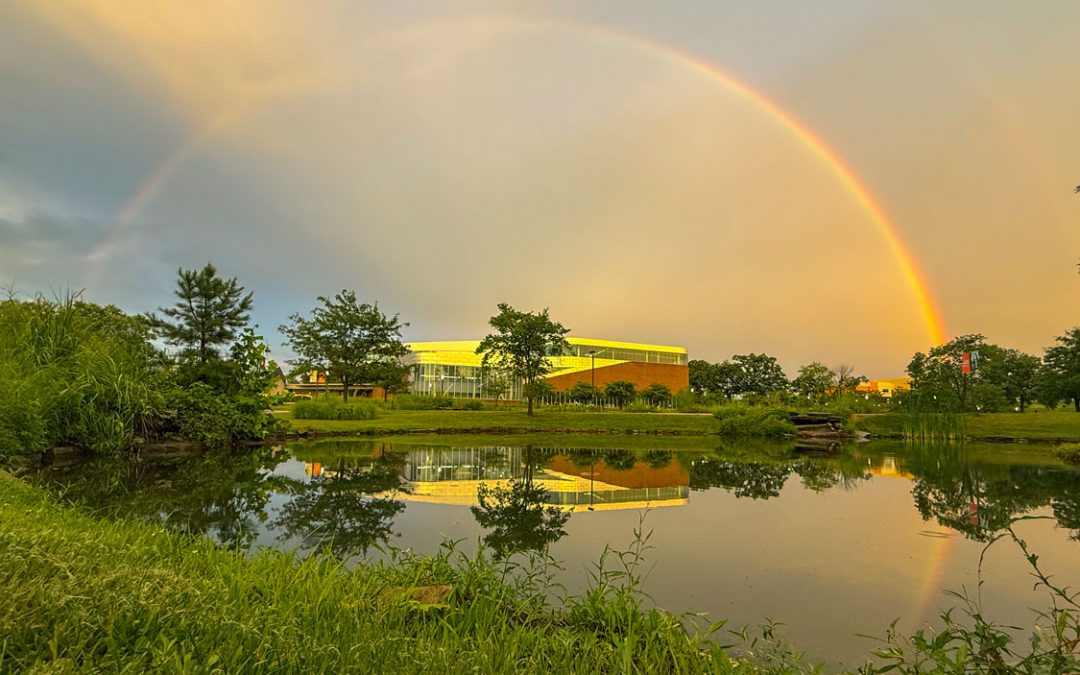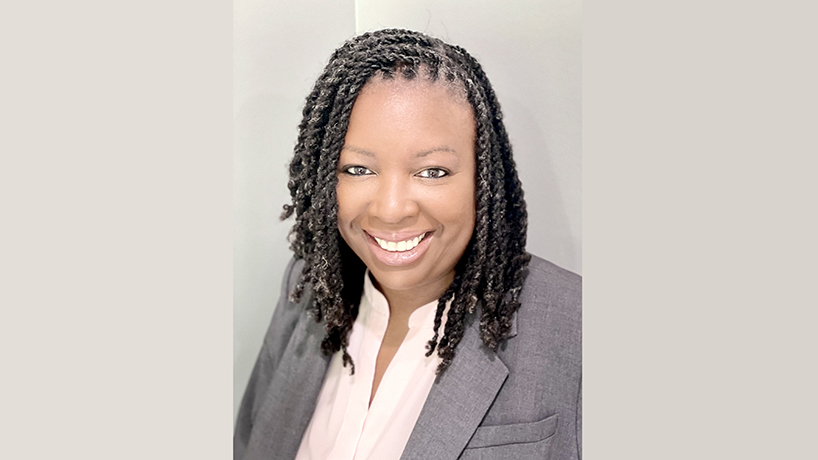
Dr. Keshia Elder will assume the role of dean of the UMSL College of Optometry on Sept. 1. Elder, who previously served as an associate clinical professor at UMSL from 2011 to 2016, will be the first Black female dean of optometry in the country. (Photo courtesy of Dr. Keshia Elder)
When Dr. Keshia Elder assumes the role of dean of the College of Optometry at the University of Missouri–St. Louis later this year, it will mark a historic moment both for UMSL and the field of optometry at large. Elder, who previously served as an associate clinical professor at UMSL from 2011 to 2016, will be the first Black female dean of optometry in the country.
“I am proud that I’m able to serve my profession, my students and my colleagues in this role,” she said. “But it’s also astounding because it’s 2022. Who would have thought it would take until 2022 to meet this milestone?”
Currently the director of Diversity, Equity, and Inclusion and director of Externships at the University of Alabama at Birmingham School of Optometry, Elder has over 20 years of experience stretching across different corners of the optometry field. Her own experience both academically and professionally has increased her determination to improve that experience for other people of color.
“Even through school – elementary, middle, high school, college – I was always one of a few people who looked like me in most of the educational settings I was in,” she said. “I’ve always been in a place where I’m the only or one of the only, and I understand how lonely that can be. I understand the stresses associated with that. I understand the amount of resilience one has to have in order to keep moving forward in that space.”
At UMSL, Elder will continue to build on her decades of experience increasing opportunity and equity in the profession, specifically highlighting the need to establish a diverse, safe, supportive and welcoming optometric environment.
“It’s important that we walk the talk,” she said. “It is important that faculty, staff and students represent the people that we serve. The only way that we can really change the face of the profession is by making sure that we have a diverse representation of the profession within our schools and colleges of optometry.”
Elder, who holds a Doctor of Optometry and two master’s degrees – one in vision science and a second in instructional design – all from the University of Alabama at Birmingham, has a lengthy and varied résumé. Each of her experiences, she said, have worked together to uniquely prepare her for this new role.
“I have a very diverse background, and I have had my fingers in a lot of different components of optometric education,” she said.
Her career began as an officer and optometrist in the U.S. Navy Medical Services Corps from 1998 to 2003, an experience that she said instilled in her the importance of looking out for your people and making sure that everyone is well-taken care of. Her time with the navy continues to set the tone for how she interacts with patients and colleagues today.
Elder has since accumulated decades of experience in academia at the University of South Carolina, UMSL and UAB. Working as an assistant professor in USC’s Department of Ophthalmology solidified her appreciation for the field of optometry, showing her how well ODs and MDs could work together to provide the best health care possible for patients. Next, while working as an assistant and, later, associate professor in UAB’s School of Optometry, she dove more heavily into the research side of things.
“It gave me the experience in research that I needed to help me understand how to form collaborative relationships to do translational research,” she said. “It helped me understand not only the time and effort that goes into building a great research portfolio, but just the incessant need to never give up. There can also sometimes be a disconnect between research faculty and clinical faculty, but because I’ve done both, I can really understand both sides of the coin.”
Elder then moved on to an associate clinical professor position in the College of Optometry at UMSL from 2011 to 2016. In 2015, she became the inaugural director of fourth-year clinical rotations, at which time she instituted many critical revisions to the externship experience. After returning to UAB in 2016 as the director of externships, she was named the director of Diversity, Equity, and Inclusion in 2021. She will assume the role of dean of the UMSL College of Optometry on Sept. 1, when Dr. Larry Davis, who has led the college for more than 20 years, steps down from his role.
“Dr. Elder’s passion for optometric education, student success and fostering belonging among students, staff and faculty make her a perfect fit for the UMSL College of Optometry,” said Steven Berberich, provost and interim vice chancellor for academic affairs, in announcing her hiring.
Elder is excited to return to UMSL, emphasizing the College of Optometry’s robust enrollment, high board passage rate, active research programs, strong residency programs and three clinical eye care centers. She plans to keep the college on the cutting edge of optometric education by continuing to incorporate innovative teaching strategies that keep students engaged in learning.
“I really have a heart for the faculty, staff and students at UMSL,” she said. “I understand the culture at UMSL. I know how hardworking the faculty and staff are. I understand how top-notch that educational program is. And I know that UMSL graduates some great optometrists.”
Elder strives to continually improve her own knowledge and effectiveness as an educator, consistently pursuing additional educational experiences such as completing advanced training in instructional design and development and serving as associate editor for Optometric Education, the only peer-reviewed journal devoted solely to optometric education. Passionate about leadership, Elder is actively involved in the optometric community nationally, holding roles with the American Academy of Optometry, the National Optometric Association and the Association of Schools & Colleges of Optometry, among others.
In addition to improving the learning environment for all students at UMSL, Elder also sees opportunities to leverage the interests and expertise of faculty members – which range from telehealth to interprofessional education to collaborative multicenter studies – to pursue scholarly activities that will contribute to the wider body of optometric knowledge.
“The optometrists that are trained at UMSL are some of the best that exist in the country, but it’s important that we not only just educate students,” she said. “Because we are in academia, we also have a responsibility to contribute to the body of knowledge that exists in our profession.”
With broad experience in clinical education, extensive research work and an unwavering, decades-long commitment to fostering welcoming environments for learning, Elder is uniquely positioned to enhance the educational experience at the UMSL College of Optometry.
“Dr. Elder is a compassionate leader and talented educator,” Davis said. “I am pleased that she is returning to UMSL in order to serve in such a critical role that will advance optometric education and the profession.”


